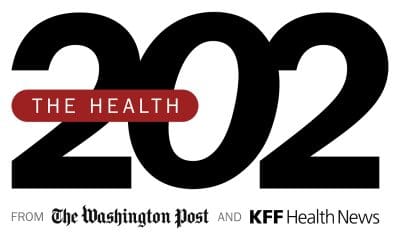Health
Proposed Federal Policy Aims to Protect Older Americans from HIV with Free Preventive Medication


Medicare to Cover Cost of Preexposure Prophylaxis Drugs
A proposed federal policy from the Biden administration aims to protect older Americans from contracting HIV by offering free preventive medication. Under the plan, Medicare would cover the full cost of preexposure prophylaxis drugs, also known as PrEP, which prevent HIV transmission. This would include both the pill form and the long-acting injectables, representing a big shift in policy. Currently, those 50 and over make up half of all people in the U.S. living with HIV.
Big Shift in Policy: All PrEP Drugs Covered Fully
The proposed policy change would mean that even the new long-acting injectable versions of PrEP drugs, which can cost over $20,000 a year, would be covered fully without requiring patients to pay copayments. However, it is not yet clear what the plan would mean for taxpayers or in offsetting the costs of caring for fewer Medicare patients with HIV in the future. The final approval for the plan is expected soon.
U.S. Lags Behind Europe and Africa in HIV Prevention
The U.S. is decades behind nations in Europe and Africa that are on track to end new HIV infections by 2030. This proposed policy change represents a step towards catching up, but there are still remaining inequities. Many people under the age of 65 will still struggle to pay for PrEP, and there are threats to cut funding for federal HIV prevention efforts. The goal is to broaden access for all demographics and reduce the racial gap in PrEP prescriptions.
Efforts to Broaden Access for Women and People of Color
PrEP has been embraced by gay and trans Americans, but it is prescribed less often to heterosexuals over 50 or women of any age. To catch up to the rest of the world, efforts are being made to broaden access for gay and bisexual men of color, as well as straight and cisgender women of color, who are disproportionately affected by new HIV infections. A national PrEP plan is being lobbied for, along with expanded messaging, increased advertising to women of color, and funding for outreach to dispel medical mistrust in communities of color.
U.S. Falls Behind in Equitable Access to PrEP
Although the U.S. was the first nation to approve PrEP, it now lags behind the rest of the world in equitable access. The cost of laboratory tests and medical visits has been a barrier for many. In contrast, PrEP pills are free in the United Kingdom and several other European nations. The U.K. is leading a small test on injectable PrEP for those who cannot take it in tablet form. The U.S. also lags behind in overall HIV treatment and prevention compared to Western Europe and some nations in Africa.
Challenges and Hostility Hindering HIV Outreach in the U.S.
The lack of a national PrEP program and a heated political climate around healthcare have hindered HIV outreach efforts in the U.S. Anti-queer sentiment and shame surrounding sex also contribute to a hostile environment around sexual health. There is a need for a broader message that taking PrEP is empowering and that it can help prevent HIV transmission.


Hey there! I’m William Cooper, your go-to guy for all things travel at iMagazineDaily. I’m 39, living the dream in Oshkosh, WI, and I can’t get enough of exploring every corner of this amazing world. I’ve got this awesome gig where I blog about my travel escapades, and let me tell you, it’s never a dull moment! When I’m not busy typing away or editing some cool content, I’m out there in the city, living it up and tasting every crazy delicious thing I can find. Join me on this wild ride of adventures and stories, right here at iMagazineDaily. Trust me, it’s going to be a blast! 🌍✈️🍴









